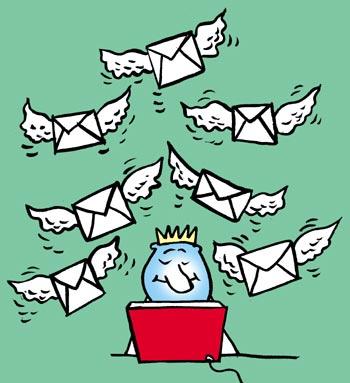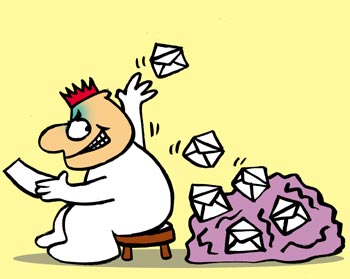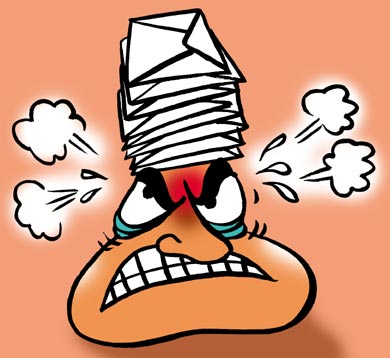
Here's an excerpt from Sheetal Kakkar Mehra's recently released book 'Business Etiquette -- A guide to the Indian professional' which explains the importance of email communication. Illustrations: Uttam Ghosh
Rule 1: Emails are not a substitute for face-to-face meetings
The hierarchy of business communication is simple: first are face-to-face meetings, ranked second are phone calls and lastly an email.
When sending and receiving emails ask your self a simple question "Would a meeting or a phone call facilitate this discussion better?"
If yes, don't waste going back and forth on an email. When in doubt, remember that an email is not a substitute for a meeting or the telephone -- it's just a faster way to write business letters.
The next best option to face-to-face meeting is to pick up the phone, where the visual component gets compromised but the vocal component and the element of live exchange remain.
Internationally, the voice mail is ranked next in the hierarchy -- it lacks the spontaneity associated with a live exchange but the tone of your verbal message remains and communicates effectively.
In India, this is not a preferred form of business communication as yet, though times are changing.
Lastly, send an email, where the recipient can neither see you nor hear you and is forced to form an opinion based on the "e-tone" of your text.
Exception: In my experience, the best way to ask for a referral or a favor is via an email as it offers the recipient time to think and revert while a face-to-face meeting or a phone call being live, may either embarrass them into making a commitment they do not wish to.
Business Etiquette: A guide for the Indian Professional by Shital Kakkar Mehra is published by Harper Collins India and is priced at Rs 250.
Click NEXT to continue reading

Experts rate emails as safe as snail mail postcards!
If you need to reprimand or fire somebody, do this in person.
Also, sensitive information which maybe damaging to a colleague's career or reputation is best discussed in a meeting in today's litigious times.
The Enron episode is still fresh in our memory.
Enron employees sent sensitive information and office gossip via email to each other, which was seized by the regulators, leading to the collapse of the firm.

When you are upset, angry or exhausted, don't write or answer emails.
A bad impulsive email remains on record for many years to come and has the ability to damage your career.
So, after typing out the mail, give yourself a cooling period and then hit 'Send'.